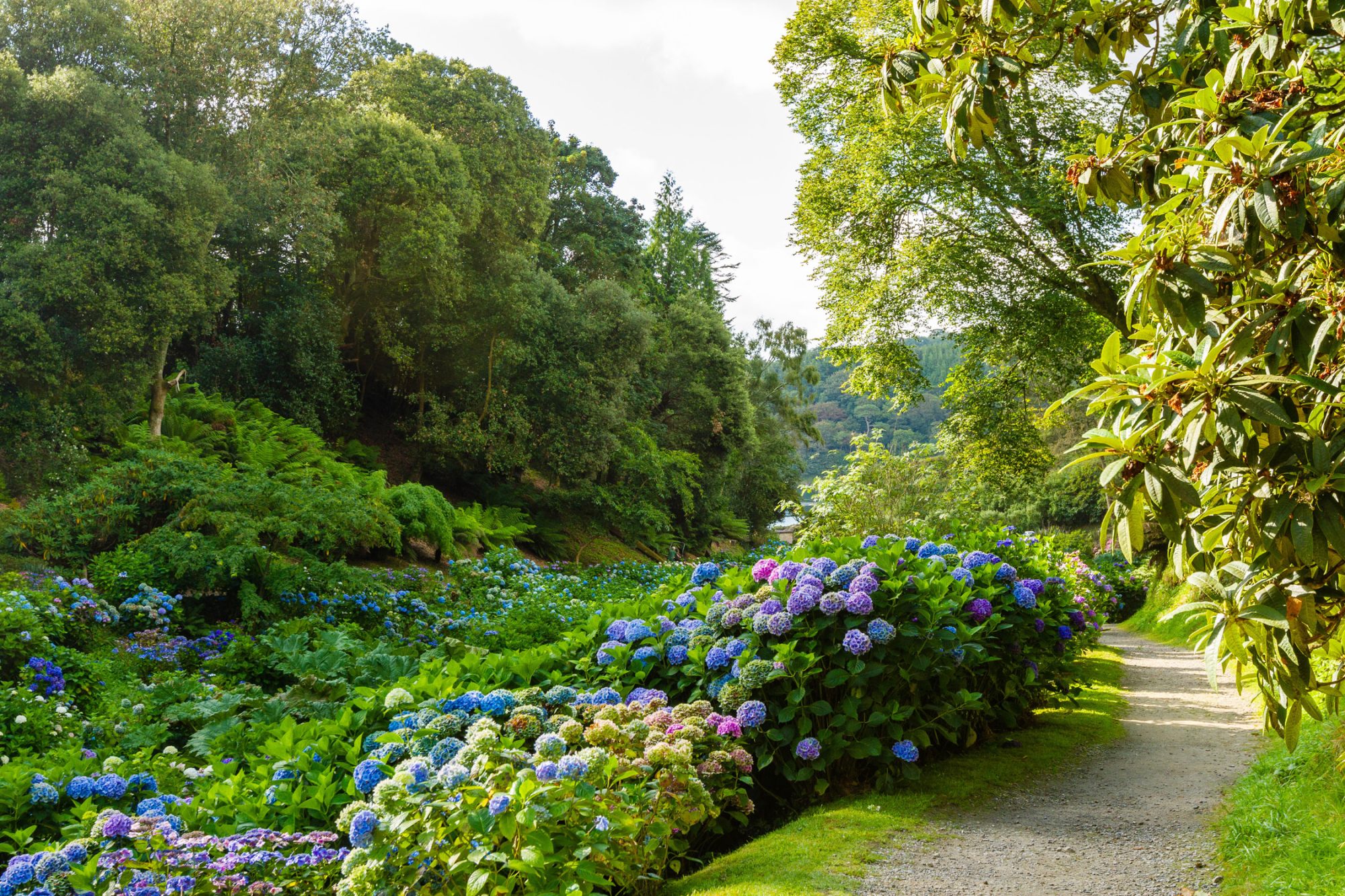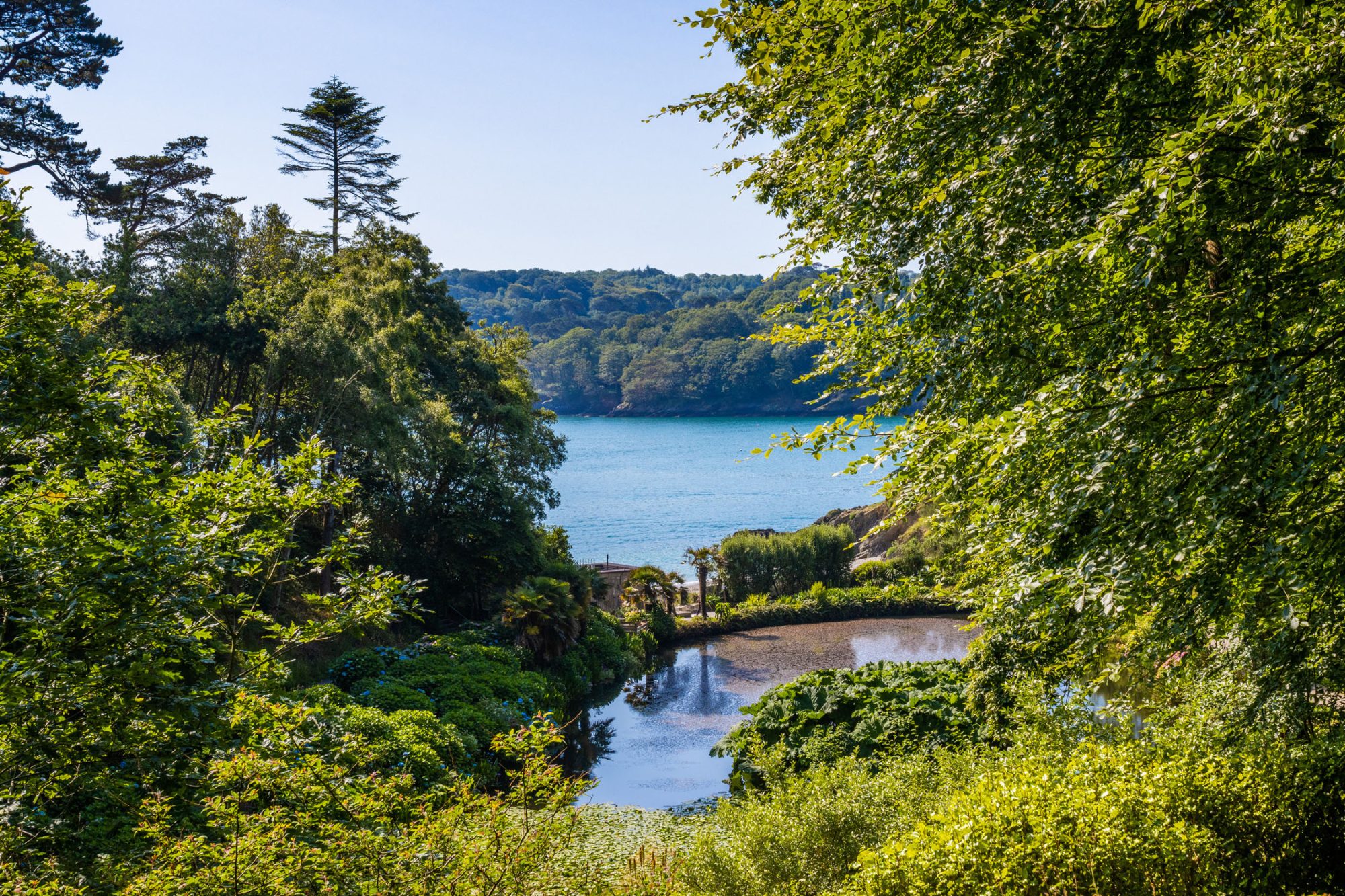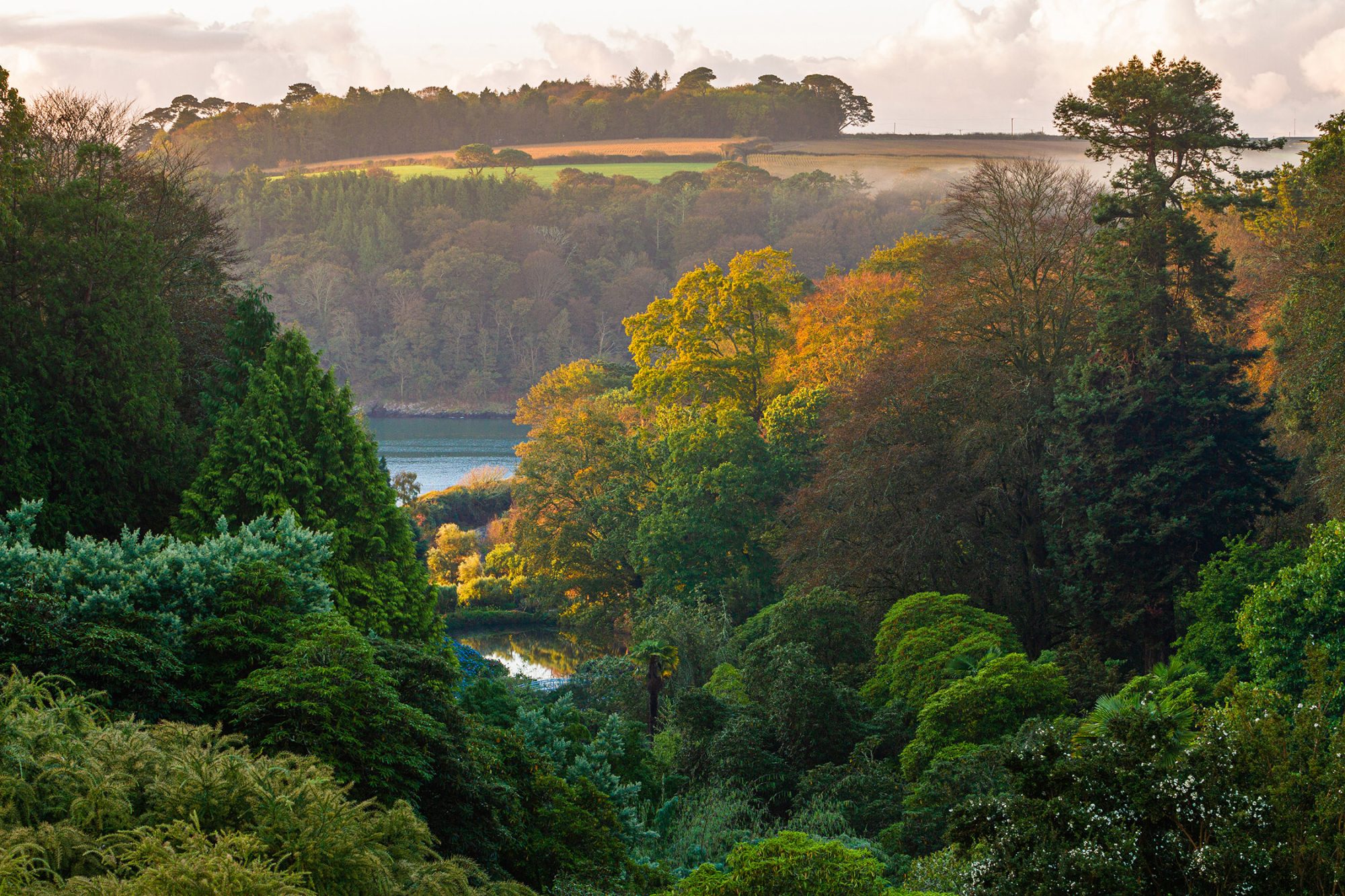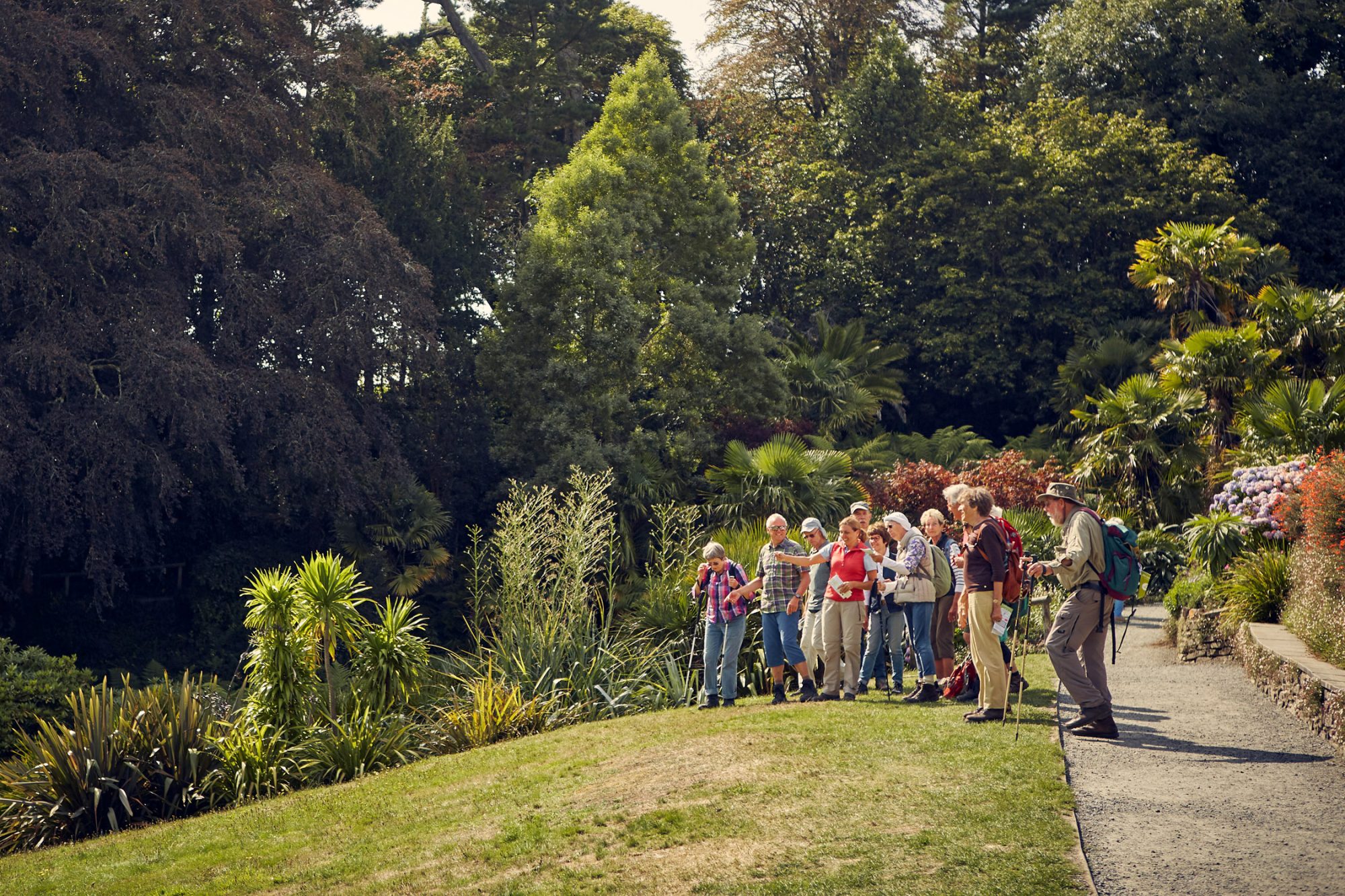Donald & Ivy Healey
Owned Trebah 1963-1971
In the early 1960s, Brian Healey, the owner of HTP Motors in Truro, sold a new Land Rover to Freddie Ford. When he dropped it off and learnt the garden was for sale, Brian instantly knew it was the ideal spot along the south coast for his parents, Donald and Ivy, to retire.
The local couple
Donald (1898-1988) and Ivy (1893-1980) were both born in Perranporth, Cornwall. We know little about Ivy, but she was very gifted at music and had never left Cornwall until she met her future husband, Donald, who had a particularly fascinating life.
He studied engineering at Newquay College and was a pilot in WWI, being shot down numerous times before returning to Cornwall and opening a garage in Perranporth in 1920. In October 1921 Donald and Ivy were married and, by the end of that decade, Donald had set his sights on a life of speed and racing.

Behind the wheel
From 1929 to 1937, Donald raced in the annual Monte Carlo rally, winning it in 1931 and making a name for himself as a highly skilled driver.
By this time, he and Ivy had sold their garage business and moved to the Midlands to advance Donald’s career. In 1945, after raising £50,000 in capital, he founded the Donald Healey Motor Company, known for producing high quality sports cars.
For the next eight years, he created one car annually, eventually collaborating with other manufacturers to create iconic vehicles under the Austin-Healey and Jensen-Healey names.
Despite his focus on car manufacturing, Donald hadn’t lost his racing roots. In 1956, at the age of 58, he set a two-way speed record of 203.76 mph at the Bonneville Salt Flats in a car of his own design. He famously used this success to market his cars, famously saying, “Win on Sunday, sell on Monday.”
Around the same time Donald put his engineering mind to boats, forming Healey Marine. He raced them too, competing in the 1958 24-hour race at Aix-les-Bains in France, amongst other events.
In 1973, Donald was honoured with a CBE from Queen Elizabeth II for “services to export” and in 1996, he was posthumously inducted into the International Motorsports Hall of Fame. His cars remain much sought after to this day, with fan clubs dedicated to his legacy worldwide.


“The rally hero of pre-war Britain became the survivor of modern, oligarchic British automaking: one man, rugged and graceful, and cars the way he saw them.”
Donald Healey: His Own Way, Automobile Quarterly Magazine, 4th Quarter, 1986
Business & Leisure
According to a note scribbled on a copy of the auction brochure, “village gossip” suggested Trebah was purchased for £18,000 in 1963, which is around £343,000 today.
Upon buying the house and garden, the Healey’s added an extension to the front of the Georgian property, which included a 24 foot long heated indoor swimming pool and conservatory, also heated for the propagation of sub-tropical plants.
Trebah’s outbuildings allowed Donald space to continue working on engines and boats, as well as grow orchids, and he formed Trebah Gardens Ltd to continue sending flowers such as hydrangeas, agapanthus, and lilies to Covent Garden flower market in London up to three times a week.

Beach restoration
The Healeys’ main development of the property happened at the beach. They applied to the Ministry of Defence for funding to remove the wartime concrete from the beach.
A grant was provided to enable the beach to be dug up, along with the removal of the jetty put up two decades before. The ‘chocolate block’ concrete matting which had covered the shingle was used to pave a steep hill leading down to the beach, which is now fittingly known as ‘Healey’s Hill’.
Granite found under the concrete was used by John Petry and local builder Joe Paget to create a new boathouse on the east side of the beach, which is now used as a beach cafe.
The central stone of the outside lintel bears the inscription ‘D.M.H 1963’, the initials of Donald Mitchell Healey.
During these works, access to the beach was changed considerably. Instead of a wire fence a new granite stone wall was built, separating the public footpath from the garden on one side and the beach on the other, with steps leading over the path onto the beach.

Watching the world go by
Returning to an early interest in radio and television, Donald decided to build a rotating beach camera to keep an eye on the ships sailing on the Helford. The Dalek-looking device became a popular pastime for friend and neighbour Jim Gundry of Trebah Farmhouse, who would often come to watch the world go by from the comfort of Donald’s armchair.




